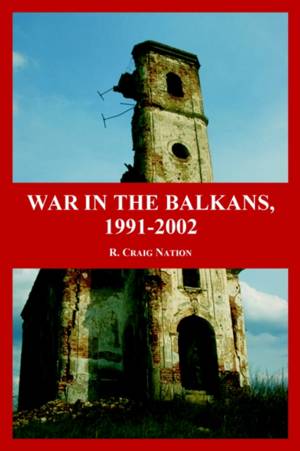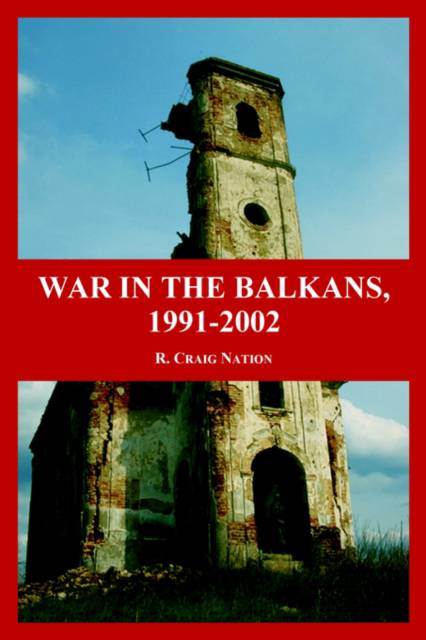
- Retrait gratuit dans votre magasin Club
- 7.000.000 titres dans notre catalogue
- Payer en toute sécurité
- Toujours un magasin près de chez vous
- Retrait gratuit dans votre magasin Club
- 7.000.0000 titres dans notre catalogue
- Payer en toute sécurité
- Toujours un magasin près de chez vous
Description
This book, by Dr. R. Craig Nation, was written to address the need for a comprehensive history of the Balkan wars provoked by the collapse of the Yugoslav Federation in 1991. These wars, and the instability that they have provoked, became preoccupations for international security management through the 1990s. After an initial phase of distancing and hesitation, Balkan conflict drew the United States and its most important European allies into an open-ended commitment to peace enforcement, conflict management, and peace-building in the region, importantly supported by the U.S. Army. These efforts are still underway, and significant tensions and potential flashpoints remain in place within former Yugoslavia and the entire Southeastern European area. The lessons learned from the new Balkan wars, and the successes and failures of U.S. and international engagement, provide a significant foundation for future efforts to manage intractable regional conflict. Dr. Nation's work has been supported by a research grant provided by the U.S. Army War College, and is published under the auspices of the Strategic Studies Institute. The Army War College's primary mission is to prepare new generations of strategic leaders to assume positions of responsibility within the U.S. armed forces and civilian arms of the national security system. That mission includes a serious confrontation with the most pressing security issues of our time, to include the nature of contemporary armed conflict and the changing nature of war itself. The Balkan conflict of the 1990s, as a case study in state failure and medium intensity warfare, international conflict management and intervention, and U.S. military engagement, provides an excellent framework for asking basic questions about the dynamic of international security at the dawn of a new millennium. War in the Balkans, 1991-2002 is intended to provide a foundation for addressing such questions by surveying events in both contemporary and larger historical perspectives and posing preliminary conclusions concerning their larger meaning. There will, regretfully, be other situations comparable in broad outline to the violent decline and fall of socialist Yugoslavia. The policies of the international community in the Yugoslav imbroglio have been criticized widely as ineffective. However, in the end, after years of futility, the conflict could be contained only by a significant international military intervention spearheaded by the United States, and a long-term, multilateral commitment to post-conflict peace-building. Few would wish to pose the outcome as a model to be emulated, but it should be a case from which we can learn. DOUGLAS C. LOVELACE, JR. Director Strategic Studies Institute
Spécifications
Parties prenantes
- Auteur(s) :
- Editeur:
Contenu
- Nombre de pages :
- 408
- Langue:
- Anglais
Caractéristiques
- EAN:
- 9781410217738
- Date de parution :
- 28-10-04
- Format:
- Livre broché
- Format numérique:
- Trade paperback (VS)
- Dimensions :
- 156 mm x 234 mm
- Poids :
- 566 g

Les avis
Nous publions uniquement les avis qui respectent les conditions requises. Consultez nos conditions pour les avis.






